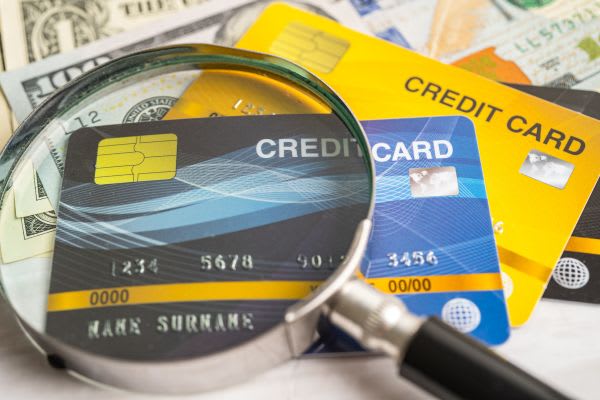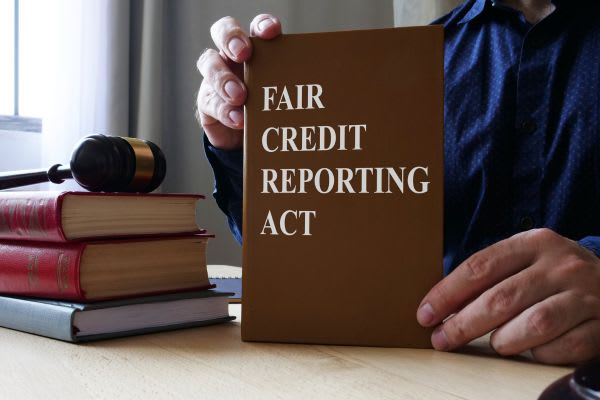A credit card denial is always frustrating, but it’s even worse when you suspect an error on your credit report is to blame. This guide explains what to do if you receive a credit card denial due to credit error, from understanding the reason to correcting the mistake and seeking legal advice from consumer attorneys.
Your credit history is a powerful tool, and you have a right to ensure it is accurate. If you have been denied a new credit card by lenders and believe it’s due to a mistake on your credit report, you can contact our firm to discuss your options.

The Adverse Action Notice
When a credit card issuer denies your application, they are required by law to send you an adverse action notice. This notice must state the specific reason for the denial or provide a general explanation and the contact information for the credit reporting company they used.
Pay close attention to this document. It is the key to understanding why your credit card application was denied and will tell you which credit bureau’s report was used to make the decision. This information is crucial for your next steps.
Common Reasons for Denial
A credit card denial can happen for many reasons. The most common include: a low credit score, high debt-to-income ratio, a history of late payments, or too many recent types of credit card inquiries.
However, if the notice points to information that you know is incorrect, such as a fraudulent charge, an old account that should be closed, or a billing error that was corrected, then a credit card denial due to credit error is likely the issue.
Obtain and Review Your Credit Report
Once you’ve identified the credit reporting company mentioned in your adverse action notice, whether it’s Equifax, Experian, or TransUnion, your next step is to obtain a copy of your credit file from that specific bureau.
Related: Learn how you can get your free credit report here.
Carefully review every detail on the report. Look for negative account information you don’t recognize, such as a collections account you already paid off, a fraudulent charge, or a credit card purchase situation that you never authorized. You may even find a card mishap, an incorrect address for billing inquiries, or an excess charge you were unaware of. These errors can significantly impact your credit score, making a credit card denial almost certain.

Dispute the Credit Error
The Fair Credit Reporting Act (FCRA) gives you the right to dispute any inaccurate information on your credit report. You can file a dispute online, by mail, or over the phone. A written dispute letter is often the best approach as it provides a clear record of your actions.
Your dispute letter should include:
- Your personal information, including your current address.
- A clear statement of what information you are disputing and why.
- Copies of evidence that support your claim. This could be a copy of a credit card statement showing a payment, a dispute notification from a previous issuer dispute, or proof that a recurring payment reporting tool misreported an on-time payment.
Send your letter via certified mail with a return receipt requested. This will provide you with a documented record that the credit reporting company received your dispute.
The Investigation Process
The credit reporting company has 30 to 45 days to investigate your dispute. They will contact the credit card issuer or creditor that provided the information to verify its accuracy. During this time, the credit card issuer will review their records and the evidence you submitted. If the information is found to be incorrect, they must notify the credit reporting company to have it corrected or removed.
Understanding the Outcome
After the investigation, the credit reporting company will send you an adequate notice of the results. If they find in your favor, the inaccurate information will be removed from your credit file, and your credit score should improve. If they don’t, you have the right to add a brief statement of your own to your credit report, explaining your side of the dispute.
Check it out! Contact Fair Credit Attorneys today for your free consultation!
What to Do Legally When Errors Persist
If your dispute is unsuccessful and you are still facing a credit card denial due to credit error, it might be time to seek legal advice. The Fair Credit Reporting Act (FCRA) and the Equal Credit Opportunity Act (ECOA) protect consumers from a variety of unfair credit reporting and lending practices. Credit attorneys and credit lawyers are skilled in this area of law and can help you navigate the legal process.
Filing a Complaint with Consumer Protection Agencies
You can file a complaint with consumer protection agencies like the Consumer Financial Protection Bureau (CFPB) or the Federal Trade Commission (FTC). These agencies investigate complaints and can take action against companies that violate consumer protection laws.

How Consumer Attorneys Can Help
Consumer attorneys have the knowledge and experience to take on credit reporting companies and creditors. They can review your case, assess whether your rights have been violated, and file a lawsuit on your behalf.
They can help you prove that a billing error or other incorrect negative account information led to your credit card denial and seek compensation for damages. In many cases, these attorneys work on a contingency basis, meaning they don’t get paid unless they win your case.
Rebuilding Your Credit After a Correction
Once the inaccurate information is removed from your credit file, your credit score should rise. This opens the door to better credit opportunities. You may now qualify for the unsecured credit cards you were previously denied for. Consider responsible credit habits to keep your credit history in good standing, such as keeping your credit utilization rate (also known as your debt-to-credit ratio) low and making sure to pay your bills on time.
For some, it may be a good idea to start with a secured credit card to re-establish a positive credit history. These cards require a security deposit but can be a great tool for rebuilding. Another tip may be to start monitoring your credit card transactions to make sure all credit card charges are legitimate as well as your balances.
Learn More: Do you have errors due to a mixed credit report?
Don’t Let an Error Define Your Credit
A credit card denial due to credit error can feel like an unfair roadblock, but it’s not the end of the road. By understanding your rights under the Consumer Credit Protection Act and taking decisive action, you can correct the mistakes and get back on the path to financial health.
Remember to read your adverse action notice carefully, gather your copies of evidence, and be persistent in your dispute. If the process becomes overwhelming, reach out to credit attorneys for legal advice. They can provide the support and representation you need to ensure your credit report is fair and accurate.
If you have questions or need assistance with a credit card denial due to credit error, contact our firm today at (866) 381-6444. We can help.
